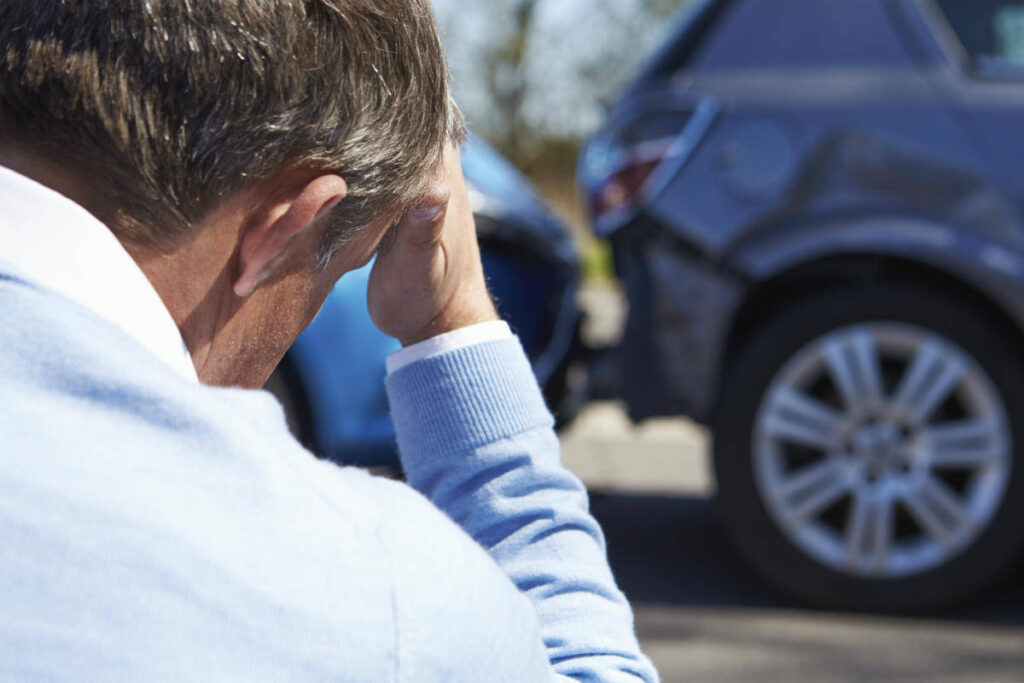CHICAGO, IL – Car crashes can be traumatic experiences and often leave victims in critical conditions. Internal bleeding can be a life-threatening injury that can result from a car accident and if left untreated, can have severe consequences.
The amount of people who suffer from internal bleeding in car accidents is difficult to quantify; however, internal bleeding due to physical trauma like a car crash is a leading cause of death in the United States under the age of 46. Some causes of hemorrhage, or internal bleeding, include:
- Blunt force trauma: A sudden stop or change in direction during a car accident can cause the body to hit the vehicle’s interior, leading to damage to organs and blood vessels and potentially causing internal bleeding.
- Seatbelt injuries: The force of the seatbelt restraining the body can lead to internal injuries.
- Penetrating injuries: Sharp objects inside the vehicle, including glass, can penetrate the body and cause internal bleeding.
- Whiplash: The rapid back-and-forth motion of the head and neck in a car accident can strain or tear blood vessels, leading to internal bleeding.
- Airbag injuries: Although airbags are crucial for safety, their rapid deployment can exert significant force on the body which can cause internal injuries, particularly to the chest or abdominal area.
- Trauma from ejection: If a person is thrown from the vehicle during a crash, the impact with the group or other objects cause catastrophic internal bleeding.
The dangers of internal bleeding
Symptoms may not always be apparent and internal bleeding can progress unnoticed until it becomes life-threatening. It can take as little as six hours for internal bleeding to lead to organ failure and death after a car crash.
The dangers associated with internal bleeding may include hypovolemic shock, organ damage, delayed diagnosis and infection risk.
Symptoms of internal bleeding
Recognizing the signs of internal bleeding can help you seek prompt medical attention. If you notice any of the following symptoms are a car accident, go to the hospital immediately to seek medical attention:
- Abdominal pain: Persistent and severe abdominal pain after a car accident.
- Swelling or bruising: Unexplained swelling or bruising at the impact site or elsewhere in the body.
- Weakness and fatigue: Anemia from blood loss can lead to weakness and fatigue.
- Dizziness or fainting: Low blood pressure from internal bleeding can cause dizziness or fainting.
- Vomiting blood: Blood in vomit or black, tarry stools can signify gastrointestinal bleeding.
- Difficulty breathing: Internal bleeding in the chest area may cause trouble breathing, chest pain or rapid breathing.
- Change in mental state: Internal bleeding can affect a person’s brain function which can result in confusion, agitation or loss of consciousness.
Seeking medical attention
Prompt diagnosis and medical attention after a car accident can address potentially life-threatening conditions like internal bleeding. Receiving quick medical intervention will support your well-being and any future legal claims.
When you seek immediate medical help, doctors can conduct a series of tests, such as blood work or imaging tests, and physical examinations to diagnose internal injuries. These tests determine the appropriate treatment to address hidden injuries and provide an early record of your condition post-accident.
Establishing a clear connection between the crash and your injuries by seeking medical attention will reinforce the legitimacy of your claim. The initial medical record serves as a foundation for legal action so you’re able to recover damages for your injuries by thoroughly documenting the extent and impact of your injuries linking them to the accident.
An experienced personal injury attorney can use these documents to file a well-supported claim to help you pay for medical expenses and other damages.
Contacting a personal injury law firm in Chicago, Illinois
If you or your loved one has been injured as a result of another’s negligence, consult with the experienced legal professionals at the Dinizulu Law Group. We can review your healthcare records, get insights from expert medical witnesses and accurately assess your losses from the accident. Fill out this form or call us now at (312) 384-1920 for a free consultation so we can provide the legal support you need during your recovery journey.



